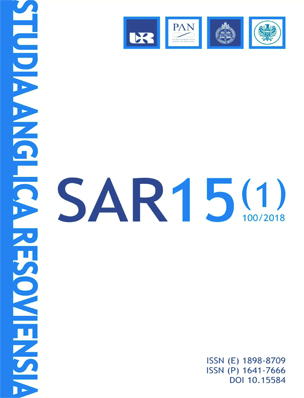Garden Politics in Margaret Atwood’s Selected Speculative Fiction Novels
DOI:
https://doi.org/10.15584/sar.2018.15.1.7Keywords:
garden, environmental crisis, Margaret Atwood, ecofeminism, technologyAbstract
Following Shelley Saguaro’s belief that the incorporation of a garden in a text is reflective of ideological aesthetic premises, this paper intends to study the representation of gardens in two speculative fiction novels by the prominent Canadian writer, Margaret Atwood: “The Handmaid’s Tale’ (1985) and “The Year of the Flood” (2009). In her books Atwood presents the readers with an apocalyptic vision of an environmental crisis resulting from profit maximisation in capitalist societies. The patriarchal domination over nature in the novels is intrinsically connected to the domination over women. The female protagonists’ bodies are represented in terms of marketable value, as every part of their body can be described as a resource for extraction. Referring to ecofeminist critics including Carolyn Merchant and Karen J. Warren, as well as the works of ecocritical scholars such as Lawrence Buell, the paper examines the way Atwood’s literary gardens reflect on the complex issues of environmentalism, religion, technology and gender politics. Special attention is paid to flower imagery as well as to the animals living in Atwood’s literary gardens and their connection to the female protagonists. Since the paper discusses novels that were published over 20 years apart, it reveals the way Atwood’s perspective on the above-mentioned issues has evolved over time.Downloads
Download data is not yet available.
Downloads
Published
2018-06-15
How to Cite
Wieczorek, P. (2018). Garden Politics in Margaret Atwood’s Selected Speculative Fiction Novels. Studia Anglica Resoviensia, 15(1), 103–113. https://doi.org/10.15584/sar.2018.15.1.7
Issue
Section
Articles
License
Copyright (c) 2018 Studia Anglica Resoviensia

This work is licensed under a Creative Commons Attribution-NonCommercial 4.0 International License.

